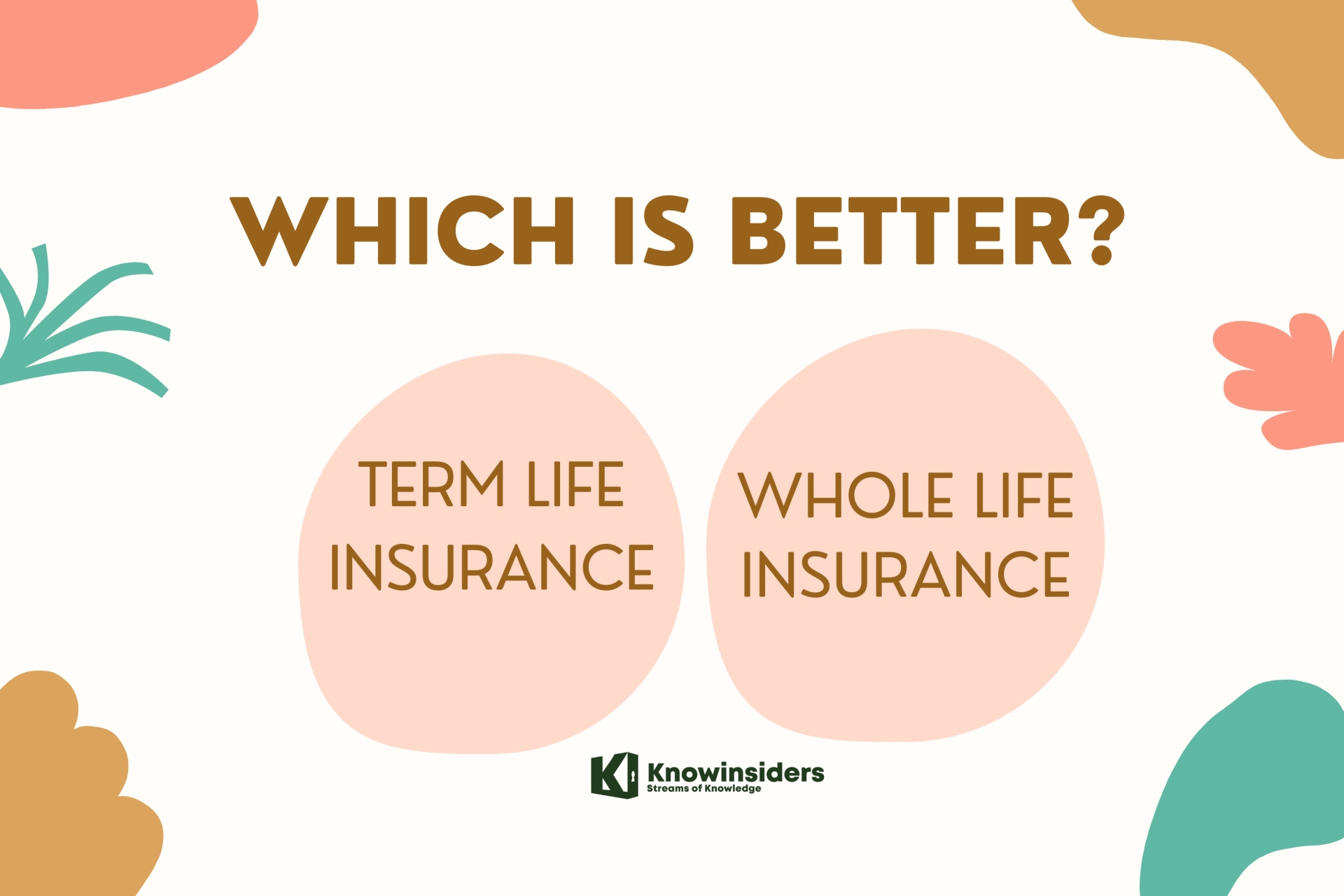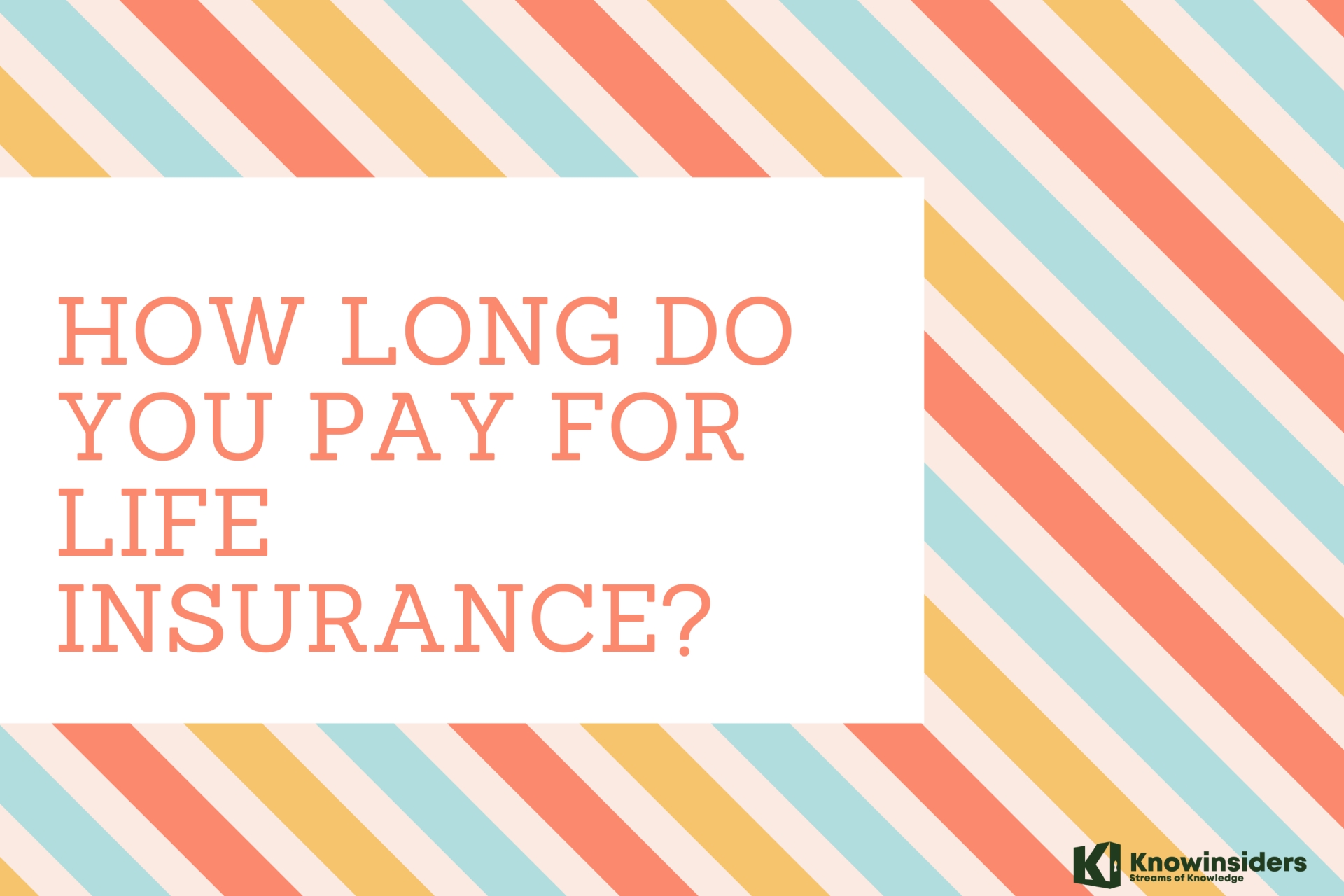An In-Depth Overview of Term Life Insurance
 What Is Better: Term Life or Whole Life Insurance What Is Better: Term Life or Whole Life Insurance |
 Top 10 Best Life Insurance Companies In the UK - Cheapest Quotes Top 10 Best Life Insurance Companies In the UK - Cheapest Quotes |
 |
| Term Life Insurance |
Because it takes a simple and straightforward approach to providing life insurance coverage, it can be an appealing option for individuals and families who are looking for temporary protection that is also affordable.
In this all-inclusive guide, we will discuss the most important aspects of term life insurance, including the policy's advantages, potential drawbacks, and how to make an educated choice when purchasing a plan.
Understanding Term Life Insurance
What is Term Life Insurance?
Term life insurance is a type of life insurance policy that provides coverage for a specific term or period. Unlike permanent life insurance policies, such as whole life or universal life insurance, term life insurance does not accumulate cash value over time. It is designed to offer protection for a predetermined duration, typically ranging from 5 to 30 years, depending on the policy and insurer.
How Does Term Life Insurance Work?
When you purchase a term life insurance policy, you pay regular premiums to the insurance company for the duration of the policy term. In the event of your death during the term of the policy, your beneficiaries receive a death benefit payout, which can help replace lost income, cover outstanding debts, pay for educational expenses, or fulfill any other financial obligations.
Benefits of Term Life Insurance
1. *Affordability*: Term life insurance generally offers lower premiums compared to permanent life insurance policies. This makes it an affordable choice for individuals and families on a budget or those seeking coverage for a specific financial obligation, such as a mortgage or education expenses.
2. *Flexibility*: Term life insurance allows you to choose the duration of coverage that aligns with your specific needs. You can select a term based on your financial obligations and the period during which you require protection the most.
3. *Simplicity*: Term life insurance is relatively straightforward and easy to understand. The focus is on providing a death benefit in exchange for regular premium payments, without the added complexities of cash value accumulation or investment components.
4. *Convertible Options*: Many term life insurance policies offer the option to convert to a permanent policy at a later date. This provides the flexibility to adapt to changing life circumstances or insurance needs without having to requalify for coverage.
Considerations When Purchasing Term Life Insurance
Determining Coverage Amount
One of the critical considerations when purchasing term life insurance is determining the appropriate coverage amount. The coverage amount should be sufficient to meet your beneficiaries' financial needs in the event of your passing. Factors to consider include outstanding debts (such as mortgage or student loans), ongoing living expenses, future education costs, and any other financial obligations.
Evaluating Policy Duration
Carefully evaluate the term duration of the policy based on your specific needs. Consider factors such as the time remaining on your mortgage, the age of your children, or the number of years until retirement. Selecting a term that aligns with these milestones ensures that your coverage is in place during the most financially vulnerable periods of your life.
Comparing Insurance Providers
Research and compare different insurance providers to find the best term life insurance policy for your needs. Consider factors such as the insurer's financial stability, customer service reputation, claims process, and the ability to customize coverage to suit your unique circumstances.
Understanding Policy Exclusions
Term life insurance policies may include certain exclusions, such as suicide within the first two years of the policy or death resulting from high-risk activities. It's important to read the policy documents carefully, understand the exclusions, and discuss any concerns or questions with the insurance provider or agent.
Assessing Convertibility Options
If you anticipate a potential need for permanent life insurance in the future, consider term life insurance policies that offer convertibility options. This can provide flexibility to convert your term policyto a permanent policy without undergoing a new medical examination or providing evidence of insurability. Assessing convertibility options allows you to adapt your coverage as your needs evolve over time.
Reviewing and Comparing Premiums
Obtain quotes from multiple insurance providers and compare premiums to ensure you're getting the best value for your coverage. Consider the long-term affordability of the premiums and evaluate any potential premium increases over the duration of the policy.
Assessing the Financial Stability of the Insurer
Before finalizing your decision, it's important to assess the financial stability and reputation of the insurance company. Look for insurers with strong financial ratings from reputable rating agencies, as this indicates their ability to fulfill their financial obligations to policyholders.
Disclosing Accurate Information
It is essential to give accurate and thorough details about your health, way of life, and medical history when applying for term life insurance. The denial of coverage or a future claim could result from failing to disclose pertinent information. During the application process, honesty and transparency are crucial.
Periodically Reviewing and Updating Your Coverage
It's crucial to regularly review your coverage after you've bought term life insurance to make sure it still satisfies your needs. Your coverage amount or duration may need to be adjusted as a result of changes in your life, such as a marriage, a child's birth, or a significant financial milestone. By routinely reviewing your coverage, you can make sure that it continues to reflect your changing needs.
Conclusion
Term life insurance provides affordable and temporary protection for individuals and families. Its simplicity, flexibility, and convertibility options make it a popular choice for those seeking financial security over a specific period. By understanding the key aspects of term life insurance, considering coverage needs, evaluating policy options, and comparing insurance providers, you can make an informed decision that provides the necessary protection for you and your loved ones.
Remember, it is advisable to consult with a licensed insurance professional who can guide you through the process and help you find the best term life insurance policy based on your specific requirements.
Frequently Asked Questions (FAQs) about Term Life Insurance
1. What is term life insurance?
Term life insurance is a type of life insurance coverage that provides protection for a specific period, or term. It offers financial security to your loved ones in the event of your passing during the term of the policy.
2. How does term life insurance differ from other types of life insurance?
Unlike permanent life insurance policies, such as whole life or universal life insurance, term life insurance does not accumulate cash value. It is designed to provide coverage for a set period, typically ranging from 5 to 30 years, without the added investment component.
3. Who should consider term life insurance?
Those who want to protect specific financial obligations should consider term life insurance. Young families with kids, homeowners with mortgages, people with unpaid debts, and people looking for reasonably priced temporary coverage can all benefit from it.
4. How much coverage do I need?
The coverage amount you need depends on various factors, such as your income, outstanding debts, future financial goals, and the financial needs of your dependents. It's essential to evaluate your financial situation carefully and consider the potential expenses your loved ones may face in your absence.
5. Can I renew my term life insurance policy?
Some term life insurance policies give you the option to renew your coverage, extending it past the initial term. It's crucial to remember that the premium rates might go up at renewal. When your term is about to expire, it's a good idea to weigh your options and think about your long-term insurance requirements.
6. Can I convert my term life insurance policy to permanent life insurance?
Many term life insurance policies provide the option to convert to a permanent life insurance policy without undergoing a medical exam or providing proof of insurability. This conversion option offers flexibility if your insurance needs change over time.
7. What happens if I outlive my term life insurance policy?
If you outlive your term life insurance policy, the coverage typically ends, and no death benefit is paid. However, some term policies offer a return of premium option where a portion of the premiums paid may be refunded if the policy expires without a claim.
8. How are term life insurance premiums determined?
Term life insurance premiums are calculated based on several factors, including your age, health condition, lifestyle choices (such as smoking), coverage amount, and the duration of the term. Generally, younger and healthier individuals with longer terms tend to have lower premiums.
9. Is a medical exam required for term life insurance?
In many cases, a medical exam is required to assess your health condition and determine your eligibility for term life insurance. However, some insurers offer "no-medical-exam" or "simplified issue" policies that allow you to obtain coverage without undergoing a medical examination.
10. Can I have multiple term life insurance policies?
To meet your unique coverage requirements, it is possible to have multiple term life insurance policies. However, it's crucial to take into account your overall insurance budget and make sure the total amount of coverage is suitable for your financial situation.
11. Can I cancel my term life insurance policy?
Yes, you have full control over when to cancel your term life insurance policy. To avoid losing the coverage and protection the policy offers, it is advised that you carefully consider your options. Consult your insurance company if you no longer require the coverage to learn your options.
 What is Life Insurance: Meaning, History, Types and Benefits What is Life Insurance: Meaning, History, Types and Benefits What is insurance and how it works? Let’s know more about the definition and the various benefits, features & types of life insurance. |
 How to Accelerated Benefits of Life Insurance How to Accelerated Benefits of Life Insurance Do you really know benefits and advantages of life insurance and how to get more benefits when buying? |
 Life Insurance: Which Term Length is Right for You Life Insurance: Which Term Length is Right for You When you buy life insurance, the most important thing to understand is how long you will pay for that. How to count the period of ... |
 What Type of Life Insurance is Right for You? What Type of Life Insurance is Right for You? How many different types of life insurance? What is the best for you? |


























